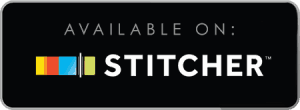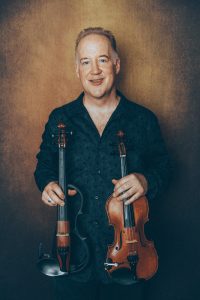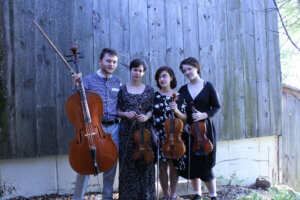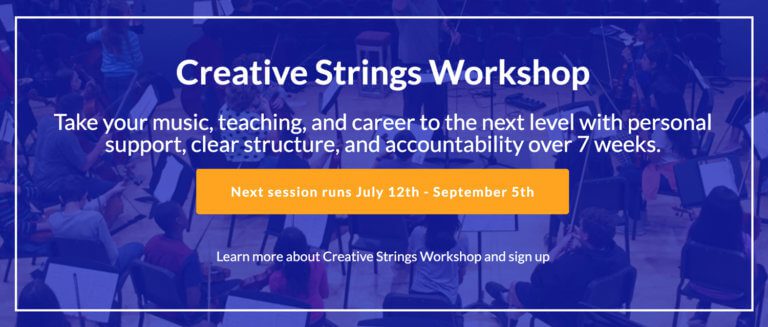Advancing String Pedagogy
Listen to or watch my discussion with violinist/educator and PhD candidate Marcello De Francesco below. Scroll below to read the edited transcript.
Watch or Listen to the Entire Episode Below
Special thanks to our sponsor Electric Violin Shop.
For help with “all things electric strings”, call Electric Violin Shop at 866-900-8400, and they will personally help answer your questions about pickups, electric string instruments, sound equipment, accessories, and more.
The Evolution of Instrumental Learning and Technique
Introduction:
“The genesis of instrumental learning comes from the oral tradition through which imitation and improvisation play a fundamental role, both in so-called “cultured” and popular music. Originally, the transmission of information and melodies, but also performance practice, took place by ear.
As for the violin, with the development and evolution of its morphological characteristics, the Baroque period saw a consequent improvement in instrumental technique and a broadening of the repertoire. Violinists, Reached a pinnacle of knowledge that enabled them to perform, compose, improvise, and even influence the progress of constructive aspects of instruments.
Corelli, Gemignani, Tartini, Viotti, Pognani, and Paganini possessed these qualities. They were excellent performers, far sighted teachers, superb composers, great innovators, and skillful improvisers, an essential trait for past practitioners.
The Impact of Romanticism and Jazz on Musical Improvisation
With the advent of Romanticism, the technical and repertorial evolution of instruments acquired such importance that the initial paradigm was altered.
Harmonic dexterity and improvisation fundamental and popular music and absolutely essential and broke works were almost completely abandoned to make way for the learning of technical practical skills oriented toward the virtuosic interpretation of complex passages in the orchestral and solo repertoire.
Moreover, it seems necessary to consider the enormous influence of other forms of expression, such as literature, art, and philosophy, which have determined stylistic, formal, and aesthetic evolution in the field of music as well. The practice of improvisation which was profoundly individualistic and determined by the performer’s abilities, tastes, and aptitudes, was progressively set aside to follow the principles of the romantic Wagnerian philosophy of the quote unquote unique creator or the quote Superman.
Thanks to it, a progressive disqualification of the performer occurred, who became a mere executor. The event of jazz in the early 20th century allowed musicians to rediscover their lost connection with the art of improvisation, raising their skills to increasingly complex and incisive levels through a common conception of creativity.
Exploring the Educational Gap in Musical Improvisation
Although a common conception of creativity is that it belongs exclusively to the artistic dimension and it is a reality that instrumental practice is one of the most popular artistic disciplines, no structured activity dedicated to improvisation is contemplated within the instrumental educational itinerary.
What is more, there is no trace of it in the curricular documents of the different levels. The creative dimension of learners remains a mere mention on tape, on paper, in the educational system of several Western countries. Although improvisation is one of the objectives mentioned in the different structural learning areas, today, in the era of the fourth industrial revolution, in which computational thinking, algorithm construction, and artificial intelligence tend to replace not only labor, but also human thinking, in addition to the undoubted advantages, a number of problems arise.
Isolation, the rarefaction of spaces for dialogue and socialization, the gradual sidelining of many cognitive skills, as well as the growing tendency toward homogenization.
Objectives and Goals:
The objective of this interview is to stimulate reflection and validate the assumptions And hypotheses underlying this research to recognize the potential of the practice of improvisation within the educational process, both in the itinerary of musical training and during the study of the musical instrument, as well as the importance of promoting activities in the classroom that stimulate the development of musical creativity in students.
The subjects, some of the world’s leading exponents of the jazz violin and the important teachers involved in improvisation. Goals, the objectives to be achieved through the interviews are as follows. To establish the motivations for choosing to devote themselves to research and study modern music and improvisation and which Artists inspire to encourage the interviewees to begin their aesthetic and artistic research, to verify the existence or absence of different forms of support from institutions for teachers in the academic field, obtain new definitions of improvisation from violinists who have devoted their careers to the study of it, analyze what musical contexts have fostered experimentation, inquire different accounts of the role schools and institutions have or have not taken in creating conditions and contexts that foster creative development.
To find whether institutions and teachers have encouraged listening to non classical music, attending concerts where improvisation is practiced, and the use of musical notation involving the writing of chordal signatures.
To know the influence of the practice of improvisation in the music education process and to measure its importance in the musical life of the respondent.
To understand their personal sound and emotional world, relationships with others, and its contribution to the development of skills, including that of instant problem solving.
Memory, and the ability to understand harmonic musical elements, the effects of interaction within a jam session in an improvisation workshop or during a live performance. To gain an understanding of how this can be a “life gym”, to learn how to listen, dialogue, support each other, take turns, and gain ways out of social isolation.
Detecting the relationship between improvisation practice and management of stage anxiety. Determining whether such practice can help the student by giving additional tools that help him or her in managing anxiety through a live performance.
Getting to know the role of technologies. Gain opinions and advice on how to cope with the era of the fourth dimension. Industrial Revolution to learn about the role of the study of improvisation after the advent of artificial intelligence in developing creativity and promoting musical cognitive and individual creative skills to acquire suggestions to give the students who have never improvised to help teachers who are unaware of the potential of improvisation and see it as a danger, an obstacle to the development of technique, and a potential distraction to musical genres seen as less cultured.”
The Interview: Personal Experiences and Musical Journey
And the first question is…
“What motivations prompt you to seek other forms of unconventional music expression through the study and practice of exo-classical music? (Jazz, rock, electronic, or others popular to country, bluegrass. Other music that is not classic.)”
When I was 15 or 16 years old, my friends were playing in a rock band and I was motivated to join to connect with friends. I started to play electric bass, electric guitar, and gradually I started to incorporate electric violin into the band.
That was the beginning for me. After that there was a series of other experiences, which were all, similarly, motivated by meeting people that played music in different situations. That drew me to learn other styles of music and other contexts for musical improvisation, but that’s a longer story so I won’t go into it.
“Which artist inspired you the most, prompting you to embark on your own personal aesthetic and artistic?”
It’s hard to say. Again, it’s been an evolution throughout my life. Beginning when I was 15 or 16 and started playing in a rock band, I was motivated by Led Zeppelin, Jimi Hendrix, I listened to James Taylor, Joni Mitchell, Def Leppard, Van Halen, it was a real mix of music growing up in the 80s in high school. It was a broad mix of music from the 70s and the 80s. Mostly popular music that inspired me to start questioning, not just about improvisation, but how music was constructed as a composer, to interpret music outside of the classical framework, beyond reading melodies off a page.
“What support or resistance did you find in improvisation? What support or resistance did you encounter in the social context from teachers, colleagues, fellow students, family?”
My friends who played in the rock band encouraged me and I was inspired by them.
Other friends wanted to come out, listen to the band play. They didn’t listen to me play classical music as much. So there was some support socially.
My teachers weren’t necessarily against it.
A lot of people in the symphonic world just didn’t understand it (once I got into Jazz later). They weren’t particularly interested in it. I think that they thought it was weird. When I played the violin in a jazz context with other jazz musicians, they also thought it was weird.
So I felt isolated when I was starting my career. Now on the other hand, you could say it had an advantage as well, because some people thought it’s novel. Because not everybody else is doing it.
A lot of jazz musicians assumed because I played the violin that I could not play jazz. And they made those assumptions based on experience they had with other violin players and seeing that most violin players are not used to playing jazz.
Most classical musicians were not interested in jazz. They didn’t understand it. They would listen to jazz music and they would think, it’s out of tune or it doesn’t sound together or whatever. They analyzed the music through a different lens.
They hadn’t given the music enough time. It was the same experience when I first started listening to jazz when I was probably 19 or so, and started to listen to jazz. I couldn’t really appreciate it. It took many years for me to be able to appreciate jazz. I continue to appreciate it more as I Iisten more.
Defining Improvisation: A Personal and Educational Perspective
“What does improvisation mean to you?”
It’s a personal question. A good question. First, we want to be able to differentiate ourselves through how we play. I think that any human being can relate to wanting to have a sound, a voice, a distinctive personality, and to have that come through how we play.
This can happen in the realm of being an improvising performer, but it also can happen when we arrange music or compose music. The voice of the improviser can show itself in different ways, in different contexts.
So for example, I have eclectic tastes. I like to play bluegrass. I like to play modern jazz. I like to play free. I like to play pop music. I like to play electronic dance music. I like to play blues, R and B, straight ahead jazz.
I can honor each of those traditions and show up in a certain way as myself in those different contexts- but also differently. There will be some aspects of me that are the same. But it may not be recognizable to everybody.
If you hear me play on a romantic manouche jazz ballad or something, I might play very differently. You might not even recognize me as opposed to my playing on a 1960s John Coltrane piece. I might play completely different and somebody might not even recognize that it’s the same player.
Improvisation is also really valuable as an equalizer, not only for me, but for students, because there are lots of musicians who can play faster than me, harmonically more complex , or with a bigger sound than me. But by having my own voice, this makes me equal. It gives validity, usefulness and value to what I bring that is different than what somebody else brings. This is valuable for students of all ages, because in classical music, only one person gets to play the solo, and it’s the person who plays the most accurate Tchaikovsky. Improvisation is so valuable as an antidote to this.
Last night I gave a lesson to a student in her 60s. She’s been playing for a long time. I listened to her. She sounded wonderful. I loved hearing her play. I told her I could never hear anybody else sound like her. That’s validating; that’s partly what improvisation is.
“In what environments did you have the opportunity to begin practicing playing by ear or without traditional notation? Is this where your personal musical experimentation began?”
No I started playing Suzuki violin when I was five years old by ear.
I learned classical music by ear. Then when I was six or seven, I started to read as well, but the ear was trained very early on and it was not tied to improvisation. And later on when I learned to improvise, I used my ear. But that wasn’t the sole way that I learned improvisation.
I’ve also used a lot of theoretical concepts. I use writing. I use many processes to study improvisation, not just by ear.
“I remember that you started to to play in gospel church with violin.”
Yeah, that’s true. I have used my ear and learned by ear, but it doesn’t represent the only way that I’ve approached learning improvisation.
I’s only one part of a multifaceted approach that I’ve used to study and to teach improvisation. So I don’t see it as being, inextricably linked. I believe that there are some people that lean more heavily on ear processes, some people lean more heavily on written or analysis or discursive processes and I think it can be useful to have a combination.
The Role of Educational Institutions in Nurturing Musical Creativity
Do you feel that schools and musical education institutions have done enough to create conditions context to encourage the creative development of students?
No, I don’t. Most of the teachers within the classical music community, including orchestra teachers in middle schools and high schools, the vast majority have not explored improvisation or musical creativity- and I would go beyond just talking about improvisation to discuss functional musicianship outside of classical musicianship.
This involves the practical understanding of harmony, groove, song construction, arranging, and improvisation that apply across many contemporary styles. And the canon of jazz studies does a good job of teaching similar things, but it makes a big mistake by limiting the teaching to only certain stylistic works within the jazz canon.
Of course there are more global thinkers in the jazz community now, but jazz institutions are largely saying, ” we’re going to teach you how to play two-five-ones over Charlie Parker tunes, learn licks and play the blues and swing….
I love all that stuff, but you’re missing the mark because most music students need a bridge to that. And so I teach jazz to people who want that, but I also am teaching people how to just understand harmony, rhythm, arranging, composition. in like fundamental universally applicable ways.
So in my zoom classes or my camps or my workshops, I’m taking a lot of classical musicians through exercises that allow them to improvise out of the scale, improvise without harmony, improvise over chords, understand voice leading, deal with groove, learning the baseline, learning the inner voices of many types of songs in many different types of grooves. And those skills, those foundational skills those universally applicable skills of harmony and voice leading and, song construction are not understood by 98 percent of all the orchestra teachers in the United States.
So they can’t teach it because they don’t understand it themselves. And the college music education, the college music education programs. Yeah. And a lot of people in Europe, like yourself, you’ve probably said this to me before a lot of people in Europe or any place put insert any place around the world.
And people will always say to me like where I live, we’re a little bit behind. No, you’re not behind. It’s the same everywhere. It’s the same in Italy. It’s the same in Singapore. It’s the same in Australia. It’s the same in Europe. It’s the same, wherever there is a culture of violin playing, wherever there is a culture, pretty much of classical music being taught, being played, I would say based on my experiences and the people that I work with all over the world, it’s pretty much the same.
America is not really ahead of everybody else, we just have a bigger country. So you might find a little more, but they have not done enough and that’s because they’re just not qualified yet. So it’s this cycle that we’re breaking, but there hasn’t been massive change since 1996.
I only use 96 because that’s when I started my career and I started to think about changing this culture. And for example, in the American String Teachers Association, I’ve been going for the last 20 years, every year, I’ve seen a massive shift. There’s a massive shift now of just for people being interested.
They’re interested in what we might call pursuing eclectic styles, learning eclectic styles beyond just classical music. There’s an interest, but there’s still a deep lag in terms of ability and understanding. But yeah, that’s that.
Personal Musical Education and the Importance of Improvisation
Did my educational institutions during my formative years encourage my participation, And did they help me?
When I went to Ohio State University I started as a performance major. Then I switched to composition. Eventually, I got my bachelor’s degree in Philosophy, but, I did interface with the jazz department.
I had a teacher at Ohio state university, whose name is Pharez Whitted, and he is a wonderful jazz trumpet player in Chicago. He gave me private lessons and that was very valuable for me. I was able to access people within the jazz department that were willing to help me.
And so that was useful. But I would say that in general institutions do not provide enough support for classical musicians for how they can become more creative without just going into a jazz direction. It was lucky that I wanted to go into a jazz direction, but there’s lots of classical musicians that aren’t ready for that.
So that was why I switched to composition. Then I switched to philosophy because I wanted to just go pursue my jazz career. So my education really came from being on the streets, learning in clubs, jam sessions, things like that. And I’ve seen that has continued.
Where there’s still problems, like my oldest child went to Oberlin, which is highly regarded as one of the top conservatories in the world and they have a top jazz program. They have a top classical program, but that was fraught with problems from the get go, the fact that the institution would not allow the student no, not just that.
It was in this case. You have a student that wants to apply. They have to choose between the jazz or the classical program. And they can’t even apply for the jazz program on violin necessarily. When you’re applying to a music school, I would have preferred that you could have the ability to perform some jazz to show some, compositions to play classical so that you can be assessed in totality of the breadth of your skills as a musician rather than, you can only audition for the classical department or you can audition for the jazz department But you can’t do both or you can’t just have one audition where you show look I know 100 jazz tunes and I can solo and I can play this concerto too. Because to me that’s really interesting like a student who can do both of those things pretty well or very well should be assessed based on all the things they bring to the table as a musician. And so most universities do not provide for that in an even in an audition. Let alone once you start on the path giving you access to a path like this and a lot of jazz programs will say You can’t study jazz In our department because we don’t have a jazz violin teacher.
That’s you know, that’s ridiculous, too It’s you should be able to study jazz violin with a saxophonist or a pianist Those people should be able to teach. I mean i’ve taught saxophone players. I’ve taught piano players. I teach guitar players and I don’t play those instruments.
I play guitar, but I would teach musicians how to become better musicians, even if I don’t teach their instrument, because I’m teaching them music. So universities, the professors at universities should be able to do that. Yeah. That’s what I think. Yeah.
And how important do you consider improvisation to be in your musical and personal life? I think it’s really important. I think that. Philosophy question, maybe. I already addressed it earlier, but, the ability to have a relationship with my instrument and a relationship with music on my own terms, where I can craft my own values around, and intentions, around what I’m doing, expressing myself musically. That’s very important. And it’s important for every human being to be able to express their own intentions, their own values and goals and a vision for their life and to have metrics that they live by in accordance with that. And this is the part of the self development of any person.
And I think that our relationship with music parallels that. And so improvisation allows, it facilitates this deeper self determined relationship and evolution versus, always measuring yourself against some standard that’s been set by everybody else on the Tchaikovsky violin concerto.
It’s just, yeah, it’s not, I, of course I love the Tchaikovsky violin concerto too. That’s fine. But I don’t want it to be the only metric out there for my development as a musician. And then also from a social standpoint, and a more holistic standpoint, it’s like the only way to play the Tchaikovsky violin concerto is if you have a concert with either piano or orchestra, and that’s very impractical.
A an improviser, I can have a relationship with many types of musicians, contexts and places around the world. And this is very valuable. This is very important.
Improvisation as a Tool for Personal and Musical Growth
And do you think improvisation can change the way we observe and understand our inner, natural and emotional world?
Do you think improvisation is a tool through which you can measure your instrumental skills and creativity? Yeah, for sure. Two questions in one. Yeah. To measure our instrumental skills and creativity, for sure. Improvisation allows us actually to define the skills that we want to develop.
We define what does it even mean? Like this idea of having chops being virtuosic, having technique. What technique are you referring to? Like the Tchaikovsky violin concerto, it requires certain techniques. It does not require other techniques. So even just the violin as an instrument is actually been very limited in terms of what techniques and what skills. are considered to be valuable, but there are so many other techniques and skills that can be learned and applied on the instrument if we change how we think about it. So definitely. Now, as far as our inner and emotional world. Yes. I’ve been teaching zoom classes and live classes now for several years now, in which I’m really trying to teach the class like a yoga class.
When you take a yoga class everybody knows that we’re engaging with the body, but we’re also engaging with the mind and the emotions. And we’re trying to learn to have emotional regulation. So when you go to a yoga class you’re putting your body into certain poses, which require physical strength and flexibility and things like this. But most yoga teachers will also strongly encourage you to go into your emotions.
Exploring Emotional Regulation Through Musical Improvisation
And this can be practiced so that we learn to foster and cultivate the regulation of our emotions, which is so important. So I believe that very much in the same way we can do this through our musical practice.
And improvisation, I believe, is a unique portal or gateway for this because we are choosing what we play. In yoga you have a certain form where your body has to be twisted in a certain way, but it doesn’t have that much complexity. And so most people can do most of the forms.
So in the same way, if we use improvisation music with simple, what I call elemental forms. Like playing half notes or playing quarter notes or playing long bows like but choosing the notes Most people can understand these forms. It’s not playing a concerto. So we don’t get lost in the intellectual and the physical side we can actually get deeper into the emotional side. So I think this is very important. Thank you.
The Impact of Improvisation on Personal and Interpersonal Growth
And do you think that improvisation has had important repercussions on your interpersonal relationships and other aspects of your life or the life of the students too?
I especially feel that definitely for me, being an improviser has been very validating for me as I’ve shared.
Because and mainly not because of quote unquote virtuosity. But I believe what’s satisfying for me is to feel the sense that I sound like me. And to feel an alignment with who I am and to feel a pride in that this is me. Obviously if I play like me in any musical situation. I also want to be musical, which means all the things that means to me. It’s you know playing in tune playing in time being supportive of other musicians, creating tension, releasing tension, making something that’s beautiful or interesting, whatever that being musical is. But also it’s the sense that I have that I am being authentically myself and in being received and sharing that.
So that’s very important. But I also think it’s really important for my relationship with my students. The students that I have, which many students, adults, teenagers, kids to amateurs, professionals, to see that they benefit from that feeling, that validation. When I hear a student perform, I hear beauty.
I hear originality. When I’ve heard you play, I think you sound beautiful. I hear marchello that is marchello and I love to hear you play. And and and I feel that about pretty much every one of my students and I think it’s really important for them to feel that valid validity and that practice in this way.
is a practice of becoming a better friend to ourselves, of validating ourself, of appreciating ourselves, forgiving ourselves of knowing that I am enough and really believing this. And I think that people need this. We need and we deserve to know that I am enough. And I think that many people, and I have been one of these people, suffer from feeling I am not enough and why should we have this pain in our life?
And so if we’re going to play music, it should serve this, It should serve this for me to feel I am enough to reinforce that I am enough. Not to Oh, I still can’t play in tune. Oh, I still can’t play that passage from that Paganini. I’m not enough. It’s not healthy.
I totally agree. I believe it’s a fundamental point to study music, to study an instrument. It’s very important. Thank you so much. And about, do
Improvisation as a Tool for Emotional Intelligence and Problem Solving
Do you think that the practice of improvisation helps the development of emotional intelligence, problem solving, correcting mistakes and learning from them?
I think that within jazz, within the field of jazz education, or for that matter, within probably people that are studying, you referenced gospel music earlier or bluegrass music or other improvisational music. Look, there are plenty of instances in all of these different, we’ll say cultures of music education around the world where it’s unhealthy, where it’s just as unhealthy as playing as studying classical music can also be.
And by the same token, you can have very healthy culture learning classical music. I think what’s important is have teachers. and institutions that are cultivating healthy relationships with the students within themselves and to other musicians and audiences. But definitely improvisation in some unique ways can cultivate this because it’s an equalizer, because not everybody can play at the same ability, quote unquote, by certain standards.
But, if you’re allowed to create your own standards and create your own language as a musician, then this legitimately changes the definition of the standards, legitimately. Like [00:35:00] Tchaikovsky violin concerto, there is a standard that is defined and it requires certain abilities.
Maybe a violinist with two fingers. Maybe could never play that piece of music, but a violinist with two fingers Could create their own music and different standards that make that music legitimately beautiful. And this is the type of cultivation that should be done also in jazz also in any culture of music, you know, is to foster. This in my opinion.
The focus of this question is to understand your opinion, also, if you think that improvisation is like a gym, to train problem solving? I think that you have to understand how to play in that moment. If a chord changes, you have to change immediately because the guitar player, for example, changed.
For my tastes, this can be a little bit too narrow of a focus. If it depends how we define improvisation, I would say more broadly, creative processes, because I think that improvisation should be understood as something that can occur in many different formats and situations.
So there are many contexts in which improvisation can take place. So for example, if a solo individual person is improvising without a predefined structure, this is very different than if you’re playing with another musician over a defined structure, right? And I also would go more broadly than that and say that it’s not just improvising in the moment, but it’s the process of listening back and then evolving over time as an improviser, composer and arranger. All these can be incorporated into the question.
Even if I try to answer the question as it’s given, I would say it really depends because improvisation falls into different situations and contexts and it acts differently in those different contexts. But yes in general the creative process helps us solve problems. It helps us find motivation.
It helps us gain more skill, it helps us become better violin players, it can help us develop our technique.
Does the practice of improvisation help cause a state of flow in the learner?
Yes. Does it influence emotions? Absolutely, especially when cultivated. So again, there are many examples where people are being taught to improvise, but it’s not being cultivated in a healthy way. So they’re developing an antagonistic relationship with practice. It’s reinforcing negativity. It’s critical that when we teach people how to practice improvisation, that we’re doing it in a gentle way. That is, matched with where they are, just like any teaching, I’m sure in Italy, it’s the same: you have to meet the student where they’re at, and come from a place of love. If we can do this, and if the teacher really understands the material and the frameworks, then we can cultivate a state of flow in the learner and generate positive emotions.
Do you think improvisation contributes to the learner’s training, strengthening? Attention, yes. Concentration. Yes. Training of technical facility. Yes. Musical understanding- It depends. You can improvise. You’re going to probably develop some harmonic understanding and [00:39:00] musical understanding.You can improvise your whole life and still never gain certain types of musical understanding, unless it’s cultivated.
When I study, after studying improvisation, I understand better. It’s a chord of tension. This is a release moment. This chord as a particular function, etc.
But you’re making an assumption though. When someone improvises over the chord progressions that Bach uses, that’s not all improvisation.
There’s improvisation that’s playing over chord progressions. There are different types of chord progressions that sound different than Bach. And then there’s improvisation that is playing over non tonal structures. So if you practice improvising over non tonal structures, it’s not necessarily going to help you understand the harmony of Bach.
And what is the role of improvisation in the interaction that occurs in a jam session, improvisation workshop or during the live performance? To what extent do you think it can be a life, gymnastic, democratic movements through which to learn how to listen, dialogue, support each other or take star, taking initiatives in musical dialogue.? Thousand percent, when we develop an awareness of how we exist in the context of other people in a community, this is about, how loud are we compared to [00:41:00] someone else? How quiet are we compared to someone else? Are we supporting someone else?
Are we listening to someone else? Are we being compassionate of someone else? Are we helping or hurting someone else? Are we getting in someone else’s way or are we lifting someone up? A thousand percent analogous and very useful to study these dynamics as they play out in a musical situation, especially for awareness.
You’re a teacher, so you see children every day who are struggling to gain more awareness about how their actions, how they’re speaking, and the words that they say, how their physical presence affects other people around them. So this is important.
Improvisation in Education: Fostering Creativity and Interpersonal Skills
What extent do you think that the practice of improvisation understood as an improvisation workshop within the course of study can be instrumental in relationships with others as a moment to break out of the isolation into which we increasingly fall today?
Yeah, a thousand percent, just like practicing string quartets. or string trios or piano trios in the classical chamber music tradition. Interpersonal dynamics get to be workshopped, leadership, teamwork, all these things.
They can be developed more in the context of improvisation because each participant is defining the problem. They’re not just being given a problem. When we play a Mozart string quartet, we’re all given a problem. And we have to solve that problem in accordance with standards.
And of course we interpret those standards a little bit. And so it’s great. But when we’re improvising and sharing music, I think it can be even deeper, especially when we’re composing or we’re using more elemental structures.
Not just playing a jazz tune. If you’re playing a jazz tune, at a certain point, it [00:43:00] becomes more just like playing classical music. There are standards that have been established. But when we’re composing together and playing more free type of structures there gets to be collaboration in defining the problems- like game play. Let’s make games together, play the games, share in understanding the rules, forming agreements. There are aspects that are different than games too.
It’s but it’s like collaborative game, not antagonistic game, right? So this is, yeah, this is important.
Addressing Stage Fright Through Improvisation
And what do you think about the relationship with, between improvisation and stage fright?
I think it can help us manage performance anxiety during a live performance because we are developing more confidence in who we are and what we can do given whatever abilities we have.
Also a practical point is that you can choose to not play a certain note. You can just choose to not play. And this can be to have a very relaxing effect. So if you’re playing the Tchaikovsky Violin Concerto, there is not a choice to not play the difficult passage, but if you’re improvising, there’s a choice.
I don’t have to make that left hand shift. I don’t have to play something that’s going to be hard. It’s going to be difficult, so in many ways it can assist with stage fright. Yeah. A thousand percent. Yeah. And that’s an important value of it.
Navigating the Relationship Between Technology and Musical Education
What role does technology play in the life of students?
I think we should use whatever technology helps us.
You know, I do most of my composition work with a pencil and paper. And, I use the recording device on my phone.
I would generally say, use whatever works for you and don’t get caught up in unnecessary complexity, but people have different relationships with technology, so they should use whatever technology actually helps them. Sometimes people stop doing something because they don’t have the technology.
A violin is actually technology. What’s the difference?
Okay. What digital applications do you think are useful now for for musician, musicians, educator, education, and improvisational skills?
I think that YouTube and just the access to view works has really transformed our ability worldwide. And I do a lot of group lessons and private lessons on zoom.
I have a thousand free videos on my YouTube channel. It’s helped a lot of people.
Okay. do you think there is a line between the resource and the rival? Such as using Google maps to drive. now, without Google maps many people don’t know how to drive to a job where they come everyday.
I’m impressed with that analogy. That’s true for me when it comes to using Google maps. I’ve lived in this town for nine years and I can’t find my where hardly anywhere without GPS.
So that’s funny. I’m sure that’s true in the use of music technology in some ways. And we have to be mindful of that. I think it’s good to go back and forth between using technology and going away from technology and, it’s good to pivot between both.
Do you think that it is possible to have a rival because the AI can be something can do something better or of us? My feeling is that it’s harder for musicians to make a [00:48:00] living.
I’d like to believe that there’s still a value for a human making live music, but I just don’t know. I haven’t seen the data.
Improvisation Versus Standardization in Music Education
With the advent of artificial intelligence, can the study of improvisation act as a counterbalance to the standardization demanded by an industrial educational vision, which tends towards a homogenization of the individual students and mere consumer?
I don’t know.
What would you suggest to music students or performers who have never practiced improvisation?
Start. Take my classes.
What would you like to say to teachers who do not know the potential of this practice and consider it a danger?
Same thing. If you’re a teacher, take my class.
I understand why people are frustrated and feel like they can’t do it. I think that anybody can learn it, but you do need a supportive environment and the right frameworks to help you have more positive experiences with it.
So I understand why people have been frustrated because they’ve had bad experiences with, not the best teaching experiences.
Encouraging Diverse Musical Appreciation and Combating Cultural Bias
It’s not just about the practice of improvisation. It’s about, opening ourselves to appreciating other genres of music and recognizing that they are equally as important , deep, valid, meaningful, and beautiful as Western European classical music.
If we fall into the trap of believing that Western European music is better or more important than other music it really is taking a a white supremacist standpoint, even if someone doesn’t realize that they’re doing that.
And I believe that’s a problem. By even just considering the possibility that other genres of music are equally important and meaningful and valid, even if we haven’t been exposed yet to them sufficiently by acknowledging, by even just open that possibility in your mind, you’re taking a step forward towards love, towards having a deeper compassion and empathy for other people in the world.
And this is going to help you be a bigger and better person. Period. I just believe that. So obviously we’re not all exposed to all things. I haven’t been that exposed to music from India. I don’t know all the music from India. So if I listen to it, I may not initially appreciate it.
It’s like food or literature, right? We should consider the possibility that things we have not been exposed to have a depth that we are not yet able to appreciate, and that it requires time and exposure to appreciate those things. There’s an analogy with people. We see people, cultures, groups of people, individuals that seems at first foreign or exotic to us.
We should start with coming from love and curiosity to try to understand people, period. With understanding comes more appreciation and more education and more learning and more enrichment. At the same time, it allows us to express compassion and listening towards other people.
That’s what we need in the world. It’s good for the world, but it’s also good for us.And in classical music, this tends to be a problem. In the classical music community, but frankly, in the jazz music community, the same thing could be true, right?
It can happen. This is a human issue. Those of us that are in privileged positions have to take responsibility. If we have a privilege, if we have power, then we have less vision, so we need to open our eyes.
Thank you so much for your time.
This is great. Really good questions. I love your project. Love what you’re doing. Love you, man. You’re awesome.
Thank you
About Marcello De Francesco

Marcello De Francesco is a musician and a dedicated researcher and Ph.D. candidate focused on the study of musical improvisation and its educational impacts. His work explores how improvisational techniques can enhance musical pedagogy, personal growth, and emotional intelligence among musicians. For more insights into his research and updates on his projects follow him on his social media.
